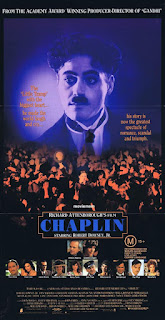By DONALD PORTER
Standard-Examiner staff
I confess. When I heard Mel Gibson was set to play the lead in “Hamlet,” I feared a cataclysmic screen disaster on the order of Clint Eastwood singing in “Paint Your Wagon.”
But the fears were unfounded. Gibson is good. Capable, even.
Sure, he’s no Larry Olivier. And he seems aware of his limitations. So he plays Hamlet, the vengeful Dane, as ferocious instead of introspective and brooding. Amazingly, it works.
Purists may protest, but this film adaptation of Shakespeare’s 400-year-old play is accessible and energetic. Therefore, it has the potential to introduce the Bard of Avon to a wide spectrum of the American public.
It will come as no surprise that the man behind “Hamlet,” the Mel-movie, is director Franco Zeffirelli, who made popular cinematic adaptations of “Romeo and Juliet” and “The Taming of the Shrew.” He aims to make audience-pleasers, and with those films he succeeded. Time will tell for “Hamlet,” but neither Gibson’s fans nor those of classic theater should be able to find much to whine about here.
“Hamlet” is the complex tale of a Danish prince, Hamlet, who grieves over the loss of his father, the king. Even more distressing is the appearance of the dead monarch’s ghost, informing Hamlet that the death was, in fact, murder – committed by the king’s own brother, Claudius (Alan Bates).
This knowledge, coupled with the immediate marriage of his mother, Gertrude (Glenn Close), to Claudius, effectively drives Hamlet ’round the bend. And as his madness flowers, drawing more and more characters into the fracas, danger and intrigue mounts and multiplies; loyalties are suspect, treachery awaits his every move and even good people are destroyed in the havoc wrought by Hamlet in his quest to avenge his father's death.
In short, this is a great story, full of passion, romance and skullduggery. And all of it hinges on Gibson’s ability to carry it off, which he does. He’s a blustering presence on the screen, constantly on the move, a raving lunatic with a dark purpose in mind.
Zeffirelli buys considerable insurance for his star in the form of his supporting cast. Close plays a youthful-looking Gertrude with a wide-eyed openness that deflects suspicion. Ian Holm is rock solid as Claudius’ loyal Polonius, and his tragic end – even though we know it’s coming – still shocks and dismays. And Bates’ performance as Claudius is a fine contrast to Gibson’s Hamlet. Claudius, wary of his nephew’s fury, is reserved, cautious.
“Hamlet” is a revelation. Gibson is more than an action star. What a nice surprise.






